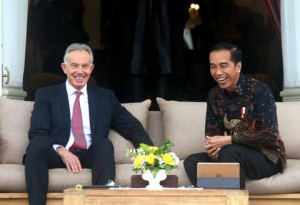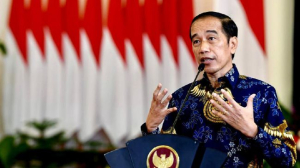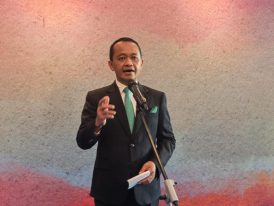RI shifts fuel imports from S’pore to U.S., Middle East amid geopolitical concerns
Indonesia is reducing its reliance on fuel imports from Singapore, diverting a significant portion of its procurement to the United States and Middle Eastern countries due to economic and geopolitical considerations, Minister of Energy and Mineral Resources (ESDM) Bahlil Lahadalia confirmed on Friday, May 9, 2025.
Speaking to the media, Bahlil cited a recent review of Indonesia's fuel import strategy revealed that 54 percent to 59 percent of the country's imported fuel has been sourced from its neighboring country, Singapore. However, with price parity between Singapore and alternative suppliers in the Middle East, Indonesia is now reevaluating its sourcing policy.
“When I checked, the price was the same compared to the Middle East. So we started thinking − not just thinking, it's almost certain − we will source oil from other countries,” Bahlil said.
He emphasized that the shift is driven not only by logistical and pricing factors but also by broader geopolitical and geo-economic strategies.
“This is not just about price. There are geopolitical and geo-economic issues at play. We need to create a balance with other partners,” he said.
The minister also confirmed that Indonesia has existing agreements with the United States that include commitments to purchase certain products, including fuel and liquefied petroleum gas (LPG).
“We have agreements with the U.S., and among the items we are expected to buy from them are fuel and LPG,” he cited.
To support this strategic shift, Indonesia is developing larger port infrastructure to accommodate bigger fuel tankers, which will improve shipping efficiency and reduce dependency on smaller vessels typically used for imports from Singapore.
The transition is already underway, with Bahlil estimating that 50 percent to 60 percent of fuel imports may soon be sourced outside Singapore. "Eventually, it could be reduced to zero," he said.
This policy move reflects Indonesia’s intent to diversify its energy sources and strengthen economic ties with major global partners, particularly in a time of shifted geopolitical alignments.
Tag
Already have an account? Sign In
-
Start reading
Freemium
-
Monthly Subscription
20% OFF$29.75
$37.19/MonthCancel anytime
This offer is open to all new subscribers!
Subscribe now -
Yearly Subscription
33% OFF$228.13
$340.5/YearCancel anytime
This offer is open to all new subscribers!
Subscribe now







